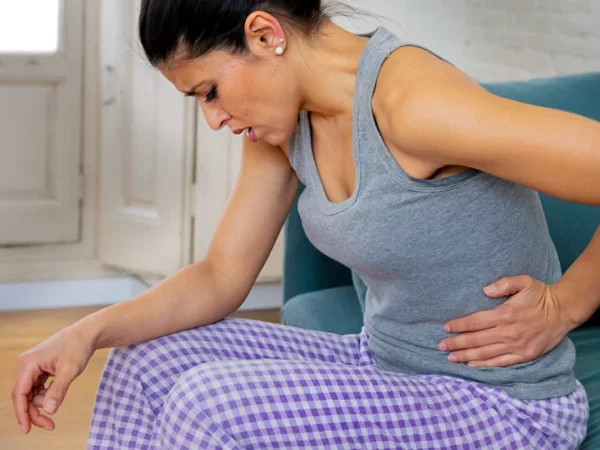Many women experience pain and cramps just before and during menstrual periods. To some, it is only an unpleasant experience that goes by with minimal disruptions but could be overwhelming to others to the extent of interfering with their everyday lives. Painful periods Orlando, medically called dysmenorrhea, shouldn’t be discounted as a standard menstrual problem since the experience could signal underlying concerns that could even impact your fertility.
You may experience menstrual pain from your first period, referred to as primary dysmenorrhea, mainly caused by hormonal issues. The problem could develop later in life called secondary endometriosis, which is caused by reproductive health issues like uterine fibroid or endometriosis. Among the common risk factor that can lead to painful periods includes the following:
Excess weight
Excess weight or obesity can impact your periods in many ways, including irregular, heavy, or missed periods. The imbalanced ovulatory function stems from the hormonal impacts of excess weight. Adipose tissue could increase estrogen levels, which disrupts the normal menstrual cycle. Moreover, obesity is associated with an increased pro-inflammatory effect which can delay the endometrial repair, increase menstrual bleeding, and cause significant pain and cramps. Besides being overweight, you could also experience pain and cramps if you are underweight. Maintaining a healthy weight range mitigates the risks and improves your overall wellness, making it easier to lead an active life.
Smoking
Smoking has adverse health consequences, and for women’s reproductive, the impact ranges from painful and heavy periods to increased risk of ectopic pregnancy and premature menopause. Smoking results in vasoconstrictions. The constricted blood vessels in the uterus cause painful and severe premenstrual symptoms and an increased risk of overwhelming cramps that could last over two days during menstrual periods. Smoking cessation is recommended to avoid menstrual pain and improve reproductive and overall health.
Alcohol consumption
Prostaglandins trigger contraction in your uterine muscles during menstrual cycles. Prostaglandins are a hormone-like substance and the main culprit behind primary dysmenorrhea. Alcohol consumption during the menstrual cycle can increase prostaglandins, resulting in extreme and painful cramps. Besides the painful experiences, alcohol consumption could also cause problems, including irregular or stopped menstrual bleeding. Such concerns could even derail your conception quests, mainly because you are likely to fail to time the ovulations to pick an optimal period to try to get pregnant. Alcohol moderation or quitting the habit can help keep your reproductive health in better shape and mitigate painful menstruation risks.
Genetics
Painful menstrual periods can run in families. This is more so considering other genetic predispositions, including early age at menarche, long or heavy bleeding, stress, and depression. While genetic predisposition is non-modifiable, you can mitigate the risk by adopting a healthier lifestyle.
Your lifestyle plays a significant role as you strive to manage or avoid painful menstrual cycles. Adopting a reproductive-health-friendlier lifestyle makes it easier to avoid excruciating menstrual period concerns. If the painful cramps result from reproductive problems like fibroids or endometriosis, their treatment, and management can help ease the pain. Visit Contemporary Women’s Care today for more on menstrual pain, risks, treatment, and management options.




